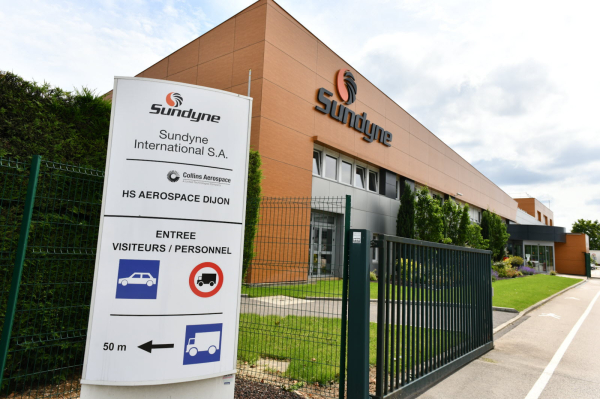
EU prosecutors on Tuesday (28 March) carried out searches at Belgium’s Liege airport and arrested four people in an operation against an alleged €300-million tax fraud ring run by Chinese exporters.
The European Public Prosecutor’s Office (EPPO) said those involved were “suspected of having put in place a complex system to evade the payment of VAT on imported goods”, using Belgian customs agencies and fake firms in other EU states.
It said the scammers targeted in the operation — code-named “Silk Road” — were “believed to have caused damages of at least €303 million in evaded tax.”
? Today: #EPPO’s ‘Investigation Silk Road’ strikes at massive customs fraud ring under investigation at Liège airport ??. Four suspects arrested, luxury cars seized. Great support from @Europol @policefederale @federalepolitie.
Find out about the scheme: https://t.co/eXyvIgxM1R pic.twitter.com/4cR7qfIf5y
— European Public Prosecutor’s Office (EPPO) (@EUProsecutor) March 28, 2023
The raids involving Belgian police, customs officials and tax authorities targeted premises at Liege Airport — a key import hub for Chinese products — and in the port city of Zeebrugge.
Private houses in three other cities belonging to the suspects were also targeted and “evidence and assets” seized, the prosecutors said.
The fraud allegedly saw the Belgian agencies acting as representatives for Chinese exporters wrongly declare goods coming in through the airport were destined for other EU countries in order to benefit from a tax exemption.
To benefit from this exemption, the Chinese exporters used private customs agencies/VAT reliable representatives in Belgium, who would declare that the final destination of the goods was in other member states. In order to do so, they are believed to have used shell companies located in France, Germany, Hungary, Italy, Poland and Spain, using fake invoices and falsified transport documents. In some cases, they allegedly used the names of real companies, which were unaware that their VAT numbers and identities had been stolen.
However, in reality, the shell companies would not receive the goods, which were actually supplied to real companies established in other member states, or sold to final consumers via online marketplaces in several countries. The purpose of these shell companies was to divert the attention of inspectors, creating a fake commercial chain and making it more difficult to carry out checks.
The goods would ultimately be sold to the final consumer, who would pay full price for the products, including VAT. However, according to the investigation, the VAT paid by the final consumer was never declared nor paid to any tax administration by the alleged criminal organisation, and was instead kept by the seller. This allowed for the goods to be sold at massive profits, while defrauding tax collection agencies of customs duties and VAT.
It is estimated that the activities under investigation have, between 2019 to 2022, caused damages of at least €303 million in evaded VAT and €6.6 million in custom duties.
The EPPO, which began working in 2021, is charged with probing any offence deemed to have cost the European Union money, which often means tracking international crime gangs and sophisticated cross-border VAT fraud operations.
In November 2022, the European prosecutors, in cooperation with law enforcement in 14 EU states, broke up a network responsible for 2.2 billions euros in VAT fraud.
(Edited by Georgi Gotev)
Source: euractiv.com



